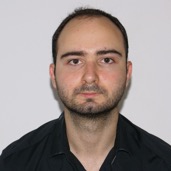
El próximo martes 10 de septiembre, a las 11:00h, el candidato a doctor de la ERI Lectura Ignacio Máñez nos presentará su tesis doctoral "Processing and effectiveness of formative feedback to increase comprehension and learning of conceptual knowledge in digital environment", que será defendida oficialmente en unas semanas.
Summary
Answering questions from an available text is an effective teaching strategy for improving student’s understanding. However, students sometimes struggle to comprehend written documents, so that effective instructional procedures such as feedback need to be applied. Digital environments are able to provide students with Elaborated Feedbackmessages (EF: explanations or prompts), that usually include Knowledge of Response(KR: Correct/Incorrect) or Knowledge of Correct Response(KCR: The correct answer is X). Despite the potential effectiveness of EF in digital environments, students do not necessarily process its content as expected. This thesis includes four studies aimed at examining how students interact with computer-based EF in question-answering settings, and its effects on text comprehension and learning outcomes, while taking into account the students’ reading skill and prior knowledge. The first study examined whether a detailed EF about the student’s question-answering process influences student’s question-answering performance and her accuracy to assess textual relevanceover a control condition. Results showed that EF improved the students’ text comprehension scores and their efficiency to assess textual relevance. The second study explored the cognitive and metacognitive processes involved in EF processing, as well as individual differences based on reading skill. Main findings showed that students paid more attention to know whether their answers were correct than to the elaborative components of feedback.Students actively monitored the accuracy of their responses by comparing their answers with the standard provided. However, they rarely constructed meaning and reported self-regulated actions. Skilled and less-skilled comprehenders processed the EF quite similarly. The main goal of the third study was to analyze the voluntary decision to access EF depending on the KR and KCR feedback received immediately after answering questions from a science text in the area of physics, while taking into account the student’s prior knowledge. Secondary students received corrective feedback according to the condition assigned: KR, KCR, or Control feedback. Afterwards, all the students could access item-based EF that included an explanation about the knowledge assessed. Main findings showed that students did not use EF very often, especially after receiving KCR feedback. Further, KR and KCR feedback made students focus on EF after failure, although there were no differences in performance. The fourth study confirmed that KR feedback made students focus on EF after failure, and that keeping the text unavailable made students use EF more often. Further, the relation between students’ prior knowledge and task performance was moderated by their decisions to access EF messages. Overall, these studies contribute to our understanding of how Secondary school students use computer-based EF in the context of question-answering scenarios.
Bio
Ignacio Máñez holds a Bachelor’s degree in Psychology and a Master’s degree in Cognitive Neurosciences and Special Educational Needs (University of Valencia). As a PhD student he has collaborated on several projects aimed at examining the reading processes and strategies young students deploy during question-answering tasks in digital environments. With regard to his PhD project, he has explored whether and how secondary school students use and process computer-based formative feedback made of both corrective and elaborative information. During his PhD training, he spent three months in the University of Minnesota (USA) and another three-month period in the University of Poitiers (France). He currently works as a school psychologist in a private school in Valencia.







